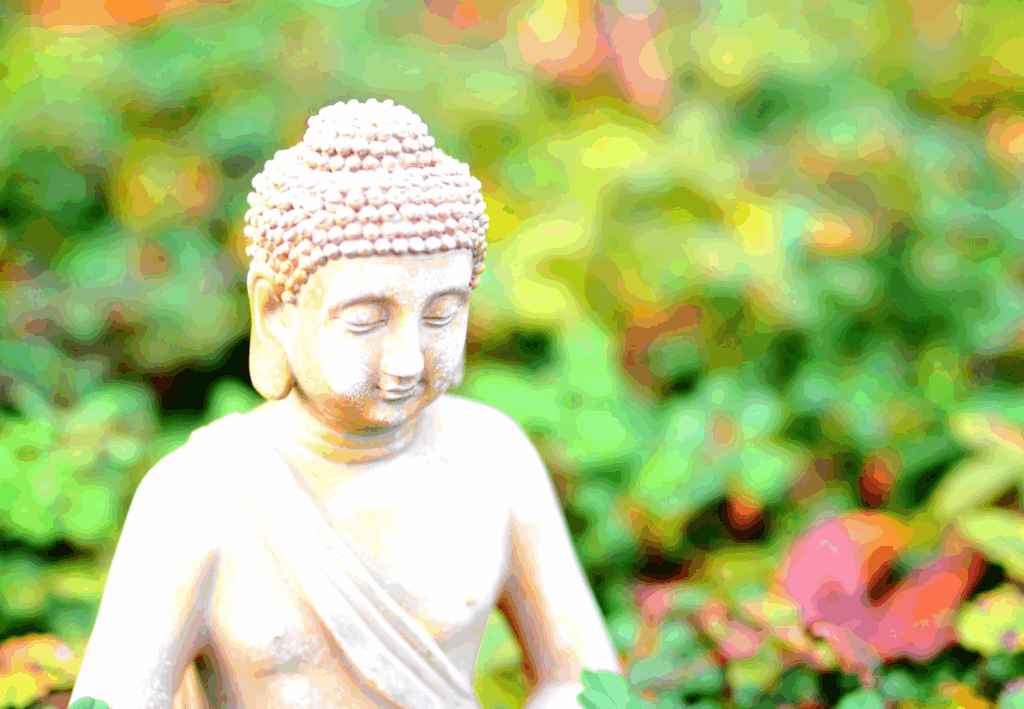Self-Compassion Meditation for Calm and Resilience | Reduce Stress

Strengthening Mental Resilience through Self-Compassion
Have you ever heard the term self-compassion? Self-compassion means treating yourself with the same kindness and care as you would show to someone you care about. On social media, a constant stream of information flows endlessly, and often we end up seeing things we didn’t intend to. When you’re feeling down, it’s easy to compare yourself to strangers’ posts and end up feeling inferior or thinking you’re not good enough.
When your mind is worn out, stress builds up. You may feel drained, lack motivation, or struggle to manage your emotions.
But when you cultivate self-compassion, your self-esteem improves. Research has shown that self-compassion also helps you bounce back emotionally and regain balance when you feel down. In this article, I will introduce the key components of self-compassion and practical ways to enhance it in your daily life.
What is Self-Compassion?
Self-compassion means showing kindness and care toward yourself. It’s about treating yourself with the same compassion you would offer to your family, friends, animals, or nature — in fact, to all living things. It is a way to stay positive no matter what happens, and is regarded as a powerful means to nurture mental well-being and a sense of happiness.
Three Essential Elements of Self-Compassion
Self-compassion consists of three important components:
1. Self-Kindness
Treat yourself as you would a dear friend in need — someone you’d rush to comfort and support. When you face regretful experiences or become preoccupied with your shortcomings, instead of being self-critical or falling into despair, offer yourself kindness and understanding. Speak to yourself with gentle, reassuring words like, “You’ll be okay,” or “It’s going to be alright — you’ll get through this.”
When you’re going through something painful or sad, wrap yourself in compassion with words like, “That must have been really hard,” or “That must have hurt — I’m here for you.” Practicing self-kindness strengthens your self-esteem by helping you accept and value yourself just as you are.
2. Mindfulness
Mindfulness means being aware of your mental and physical state in the present moment, without judgment.
It involves accepting both negative and positive emotions exactly as they are. Instead of ignoring sadness or pain, you hold space for these emotions and acknowledge them fully.
Similarly, when you’re feeling happy and warm inside, allow yourself to embrace that joy openly and wholeheartedly — like a child does. By recognizing and accepting your thoughts and feelings as they are, you begin to believe, “I am fine just the way I am.”
3. Common Humanity
Life naturally comes with challenges — whether in your job, family, or school life. There will be times when you feel overwhelmed and need to pause. In such moments, it’s easy to fall into the mindset of, “Why is this happening to me alone?” This narrow perspective can make you retreat inward, feeling isolated and hopeless.
But self-compassion reminds you of our common humanity — the understanding that suffering is a shared part of the human experience. Recognizing that “I’m not alone in this pain — everyone goes through hard times” helps ease the weight of your struggles and brings a sense of connection and relief.
Benefits of Cultivating Self-Compassion

Let’s explore three major benefits that come with enhancing self-compassion:
1. Stronger Resilience
Resilience refers to the ability to recover, adapt, endure, and bounce back from adversity. When we encounter painful or distressing experiences, we often feel overwhelmed by negative emotions like anxiety and stress. But with inner resilience — the strength to rise above the emotional waves — we can face any hardship that comes our way.
As self-compassion grows, we become more capable of accepting ourselves objectively and treating ourselves with kindness and respect. This allows us to maintain a flexible, optimistic mindset even during difficult times.
2. Reduced Stress and Anxiety
Enhancing self-compassion also helps reduce feelings of stress and anxiety. By becoming more mindful — that is, focusing on “this present moment” and acknowledging your current emotional and physical state without judgment — you learn to manage your emotions more effectively. With the growing ability to observe yourself objectively, your mind stabilizes and settles into a calmer, more peaceful state.
3. Greater Sense of Happiness
Self-compassion also heightens your ability to feel happiness. With a more positive outlook, you become more aware of and receptive to the events unfolding around you. You begin to appreciate even the small things, leading to a deeper, more lasting sense of contentment in your everyday life.
As you cultivate a more compassionate relationship with yourself, you start to feel gratitude for things like:
- Waking up to a new day
- A beautiful, sunny morning
- A delicious cup of coffee
- Your family being safe and well throughout the day
- Falling asleep in a warm, cozy bed
This mindset inspires a desire to cherish yourself more deeply. And you begin to realize just how precious the time spent with your loved ones is — encouraging you to treasure those moments even more.
How to Cultivate Self-Compassion

There are many ways to cultivate self-compassion, and one powerful method is Loving-Kindness Meditation.
What is Loving-Kindness Meditation?
Loving-kindness meditation is a practice where you silently repeat phrases of compassion and goodwill while visualizing yourself and others. It involves wishing happiness, peace, and freedom from suffering for both yourself and others.
You begin by directing compassionate wishes toward yourself. Silently repeat phrases like:
- “May I be happy.”
- “May my wishes come true.”
- “May I be free from anger and hatred.”
- “May I be filled with love and compassion.”
Next, direct those same heartfelt wishes toward someone important to you:
- “May my loved ones be happy.”
- “May my loved ones’ wishes come true.”
- “May my loved ones be free from anger and hatred.”
- “May my loved ones be filled with love and compassion.”
Finally, extend these compassionate intentions to all beings — people, animals, nature — everything living in this world:
- ““May all living beings be happy.”
- “May all living beings’ wishes come true.”
- “May all living beings be free from anger and hatred.”
- “May all living beings be filled with love and compassion.”
This meditative practice helps expand your sense of connection, softens your heart, and nurtures a deeper, more enduring form of self-compassion.
Embrace Your Heart with Warmth and Kindness
In this article, we explored the key elements of self-compassion and practical ways to strengthen it in daily life. You are the one who is most capable of recognizing your emotions first and accepting them as they are. And it is you — no one else — who can truly take care of yourself with love and kindness.
Are you pushing yourself too hard? Whether you’re going through difficult times or moments of joy, take time to listen to your heart and body — and gently embrace yourself. Let’s strive to live with a positive, calm, and resilient heart.
Thank you for reading to the end.
Frequently Asked Questions

FAQ 1: What is self-compassion meditation in simple terms?
Answer: Self-compassion meditation means treating yourself with kindness and awareness, just as you would care for a close friend. It combines mindfulness with compassion to strengthen emotional balance.
Real Results: Research shows that practicing self-compassion meditation reduces self-criticism and increases emotional resilience in more than 60% of participants.
Takeaway: Self-kindness transforms the way you face challenges
FAQ 2: How does self-compassion meditation improve mental resilience?
Answer: Self-compassion meditation helps you recover faster from setbacks by encouraging a flexible and supportive mindset. It allows you to bounce back with strength instead of falling into self-criticism.
Real Results: Studies indicate that people who practice self-compassion meditation show greater adaptability and lower stress hormone levels under pressure.
Takeaway: Compassion builds resilience like roots anchor a tree
FAQ 3: Can self-compassion meditation reduce stress and anxiety?
Answer: Yes, self-compassion meditation lowers stress by calming the nervous system and reducing negative self-talk. It creates space to manage emotions more effectively.
Real Results: Clinical studies reveal that self-compassion meditation practices lead to up to 40% reductions in anxiety symptoms.
Takeaway: A gentle inner voice softens anxiety’s grip
FAQ 4: What is the role of mindfulness in self-compassion meditation?
Answer: Mindfulness helps you notice your emotions without judgment, while self-compassion meditation encourages responding with kindness. Together, they stabilize your inner state.
Real Results: Mindfulness-based self-compassion meditation programs have shown significant improvements in mood and emotional regulation among participants.
Takeaway: Awareness and kindness work best as partners
FAQ 5: What is common humanity in self-compassion meditation?
Answer: Common humanity means recognizing that suffering and mistakes are part of the human experience, reminding you that you’re not alone in your struggles.
Real Results: Research highlights that acknowledging shared humanity reduces feelings of isolation and promotes social connection.
Takeaway: You are never alone in your pain
FAQ 6: What is Loving-Kindness Meditation in the context of self-compassion meditation?
Answer: Loving-Kindness Meditation is a practice where you repeat phrases of goodwill, first for yourself and then for others, extending compassion outward. It is one of the core practices of self-compassion meditation.
Real Results: Studies show that regular Loving-Kindness practice increases positive emotions and compassion toward both self and others.
Takeaway: Compassion grows stronger when shared
FAQ 7: How can I practice self-kindness daily through self-compassion meditation?
Answer: Simple steps include speaking to yourself kindly, writing compassionate notes to yourself, or pausing to say, “This is hard, but I will be okay.” Practicing self-compassion meditation daily strengthens these habits.
Real Results: Many practitioners report reduced self-criticism and improved self-esteem after consistently practicing self-compassion meditation.
Takeaway: Small acts of kindness to yourself add up
FAQ 8: How is Gassho meditation related to self-compassion meditation?
Answer: Gassho, rooted in Buddhist tradition, emphasizes gratitude, awareness, and connection through a simple gesture of placing the hands together. This practice complements self-compassion meditation by cultivating kindness toward oneself and extending compassion outward.
Real Results: Practitioners of Gassho meditation report greater calm, reduced stress, and an increased sense of connection — effects that mirror findings from studies on self-compassion meditation.
Takeaway: Gassho brings gratitude and compassion together in one simple gesture
FAQ 9: How do I start practicing self-compassion meditation?
Answer: Begin with short mindfulness sessions, add self-kindness phrases, and practice Loving-Kindness Meditation. Consistency matters more than length.
Real Results: Beginners practicing self-compassion meditation for just 5–10 minutes daily reported noticeable emotional balance within a few weeks.
Takeaway: Start small, and let compassion grow naturally
FAQ 10: How do you practice self-compassion meditation step by step?
Answer: To practice self-compassion meditation, sit quietly, focus on your breath, and bring to mind a challenge. Then repeat kind phrases like, “This is a moment of suffering. May I be kind to myself. May I give myself the compassion I need.” With practice, you can expand these wishes to others as well.
Real Results: Many practitioners report that practicing self-compassion meditation for 5–10 minutes daily leads to noticeable improvements in emotional stability and reduced self-criticism.
Takeaway: Gentle words, repeated daily, can reshape how you relate to yourself
FAQ 11: What is the Mindful Self-Compassion (MSC) program and how is it different from MBSR?
Answer: The MSC program is an evidence-based training designed to teach self-kindness and resilience through structured mindfulness and self-compassion meditation practices. While MBSR (Mindfulness-Based Stress Reduction) focuses mainly on stress reduction and present-moment awareness, MSC emphasizes cultivating self-compassion as a core skill. Both are complementary, and many people practice them together.
Real Results: Research in Europe and North America shows that MSC participants report increased resilience, reduced anxiety, and higher life satisfaction, with effects lasting for months after the program.
Takeaway: MSC teaches you not only to notice the moment, but to meet yourself with kindness in it
Related Articles
Self-compassion practices, even just one week long, have been shown to reduce depressive symptoms and increase happiness, with benefits lasting up to six months.
Studies highlight that therapies such as Mindful Self-Compassion (MSC) and Compassion-Focused Therapy (CFT) significantly improve self-compassion and reduce anxiety and depression.
Morning meditation offers a simple way to boost energy, focus, and emotional resilience, especially helpful after poor sleep.
Mindful self-compassion is a gentle practice of meditation that combines mindfulness and kindness, teaching you to embrace yourself with care.



